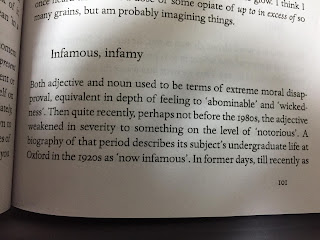Science Says (reprise)
It is, for me, in the nature of blogging, that one writes somewhat off the cuff. Therefore, I don't expect or intend to make definitive statements here. However, looking back on a previous post, ' Science Says . . . ', I think I need to revisit it. On the whole, I am satisfied with what I wrote there, as far as it went. What I do think needs some correction is that I addressed the argument of the article I was criticising as if it was advocating what is known as 'eliminative materialism': the philosophical view that consciousness does not exist. I think the language of the article is itself confused enough to give this impression in places, but the writers of the article seem to be professing epiphenomenalism: the idea that consciousness is nothing over and above a side-effect of the physical workings of the brain. There is a great deal to criticise in the article, and I certainly can't do it all in one sitting, but perhaps I will begin revisiting my critici...
